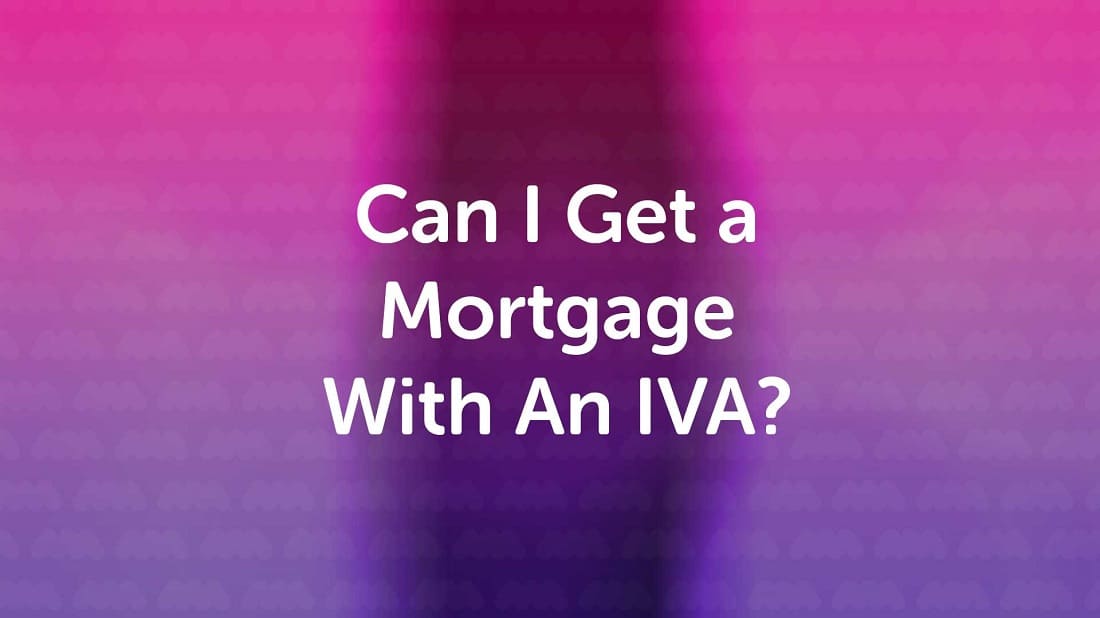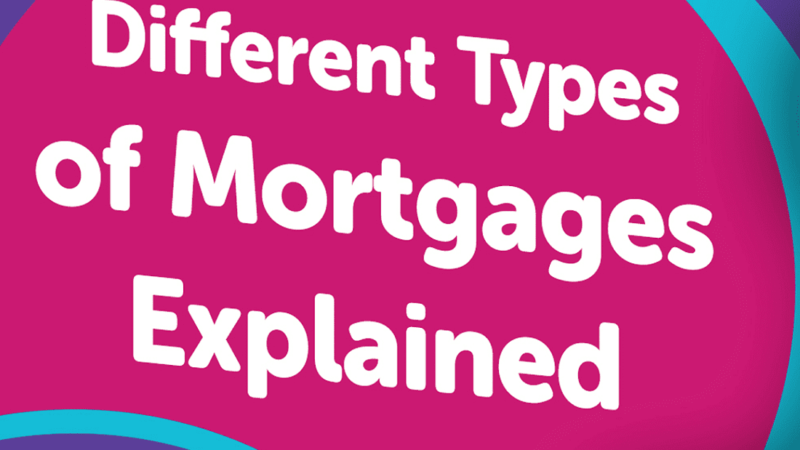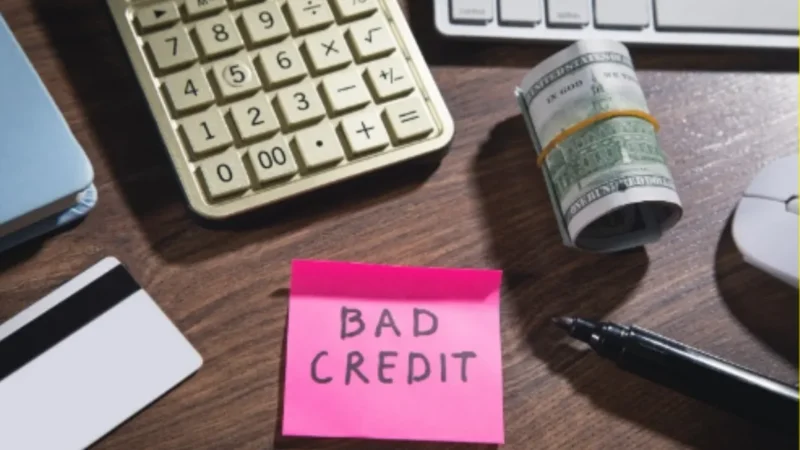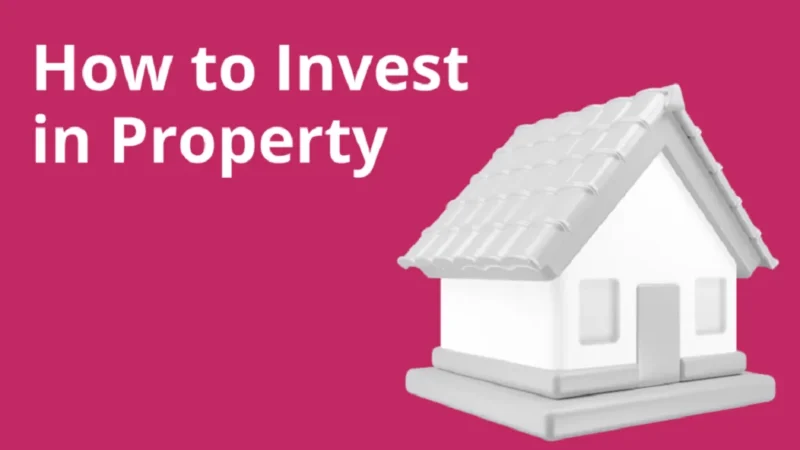IVA Mortgages : Can You Get a Mortgage With An IVA?

Table of Contents
ToggleMortgage with IVA
If you’ve struggled with debt, you may have received an Individual Voluntary Arrangement (IVA) to help you manage your repayments. If you feel like you’re in a better place with your finances, you might be looking to buy a property.
Your previous debt problems will have left some marks on your credit report, which means you may need a bad credit mortgage. These are specifically designed for people who have struggled with debt, whether you’ve dealt with an IVA, CCJ, or even bankruptcy. But, they can also be more difficult to find, apply for, and secure. So, it’s well worth enlisting the help of a bad credit mortgage broker who can support you in finding the most appropriate mortgage product and hold your hand through the application process to give you the best chance of succeeding.
What is an IVA?
An Individual Voluntary Arrangement (IVA) is a legally binding agreement between individuals and their creditors – any person, company, or third party they owe money to – to pay back their debt.
An IVA is a payment plan for anyone whose debt is getting out of control. The Individual Voluntary Arrangement allows you to take all of your debts and transform them into a single monthly payment you will pay your creditors over an extended period – usually five or six years.
At the end of the agreement, any remaining debt will be wiped from your name.
IVAs are set up by an Insolvency Practitioner (IP), a specialist debt professional who will act on your behalf. It’s an IP’s job to set up the agreement, communicate with creditors, pay them throughout the arrangement, and ensure that those payments are made to the right lender at the right time.
Can you get a mortgage with an IVA?
It’s doubtful you’ll be able to take out a new mortgage while you still have an IVA in place. Not only will lenders be hesitant to provide you with a mortgage, but you’ll be required to follow stringent rules while still in your arrangement, which will typically limit how much you can borrow.
This means you’ll usually need to wait until your IVA has ended before you start to apply for mortgages. This will be five to six years after your IVA is put in place.
Can I get a mortgage after an IVA?
Applying for a mortgage once your IVA is settled certainly improves your chances.
Some lenders will only accept applicants who’ve ever had an IVA; others may only lend to you once the IVA has disappeared from your credit report after six years.
But there are a decent number of lenders willing to consider mortgage applicants if their IVA is at least three years old, fully settled and you have spent the time rebuilding your credit history and keeping up with all payments.
If you’re in this situation, you could be asked to provide a larger mortgage deposit or may find that you are charged a higher mortgage interest rate than those with a clean credit history.
If you’ve had debt problems and want to get a mortgage, consider a mortgage broker who might be able to suggest lenders that will consider you.
How long after an IVA can I get a mortgage?
The timeframe for getting a mortgage after an IVA in the UK depends on several factors:
- Completion of your IVA:It’s typically 5-6 yearsafter starting your IVA until it is fully completed. During this period, getting a mortgage is highly unlikely due to limitations on your income and borrowing restrictions.
- Recovery of your credit score:Once your IVA finishes, the negative impact on your credit score diminishes. However, rebuilding a score high enough for mainstream lenders to consider you for a mortgage might take some time. This could be anywhere from 1-3 yearsafter your IVA completes.
- Lender criteria and creditworthiness:Different lenders have varying criteria for accepting borrowers with a history of an IVA. Specialist lenders focusing on bad credit might be more flexible than mainstream banks, but may offer less competitive interest rates.
- Your individual circumstances:Factors like the size of your deposit, current income, and overall financial stability will also influence your ability to secure a mortgage.
Here’s a rough timeline:
- 0-5 years: A mortgage during your IVA is highly unlikely.
- 5-8 years: You can qualify with specialist lenders, but expect stricter criteria and higher rates.
- 8+ years: Mainstream lenders become more likely options, and your interest rates could become more competitive.
Do I have to declare an IVA on my mortgage application?
Yes, you are legally obligated to declare an IVA on your mortgage application in the UK, even if it is no longer on your credit report or has been completed and discharged for more than six years. Here’s why:
Transparency and honesty: Declaring your IVA shows transparency and honesty to the lender, allowing them to make an informed decision based on your complete financial history. Hiding this information could be considered fraud and have serious consequences.
Assessing affordability: An IVA indicates past financial difficulties, which is relevant to your ability to manage future debt like a mortgage. By knowing about your IVA, the lender can more accurately assess your current financial situation and affordability.
Compliance with regulations: Lenders are subject to regulations that require them to collect and verify your financial information. Please disclose an IVA to avoid violating these regulations and putting the lender at risk.
Potential consequences of not declaring: If you don’t declare your IVA and your application is approved, you risk:
- The mortgage being revoked: If the lender discovers your IVA later, they can cancel your mortgage and demand immediate repayment.
- Legal action: You could face legal consequences for fraud, potentially damaging your credit score further.
Does an IVA affect your mortgage?
Yes, an IVA (Individual Voluntary Arrangement) can affect your mortgage in the UK in several ways:
Impact on existing mortgage:
- Usually unaffected: If you already have a mortgage before entering an IVA, it won’t be included in the arrangement. So, you’ll need to continue making regular mortgage payments as usual.
- Potential adjustments: If your mortgage payments change due to interest rate adjustments, you should discuss with your IVA supervisor to adjust your IVA payments accordingly.
Impact on obtaining a new mortgage:
- Highly challenging: While not impossible, getting a new mortgage while undergoing an IVA is very difficult. Most lenders consider IVAs negative markers on your credit report and view you as a higher risk borrower.
- Limited options:If you find a lender, you’ll likely face:
- Higher interest rates:Expect significantly higher rates than standard mortgages.
- Larger deposit requirement:To reduce the lender’s risk, you might need a larger deposit, typically 20% or more of the property value.
- Fewer choices:You’ll have fewer lenders and mortgage products than someone with a clean credit history.
Long-term impact:
- Credit report: An IVA stays on your credit report for six years after completion. This negatively impacts your credit score, making securing other credit products like loans or credit cards challenging during this period.
- Mortgage eligibility: Once the IVA falls off your credit report, your chances of getting a mortgage increase. However, depending on their policies, some lenders might still consider the IVA when assessing your application.
Additional factors:
- Time remaining in IVA: Your chances of securing a mortgage improve as you near the completion of your IVA.
- Reason for IVA: Lenders might be more understanding if the IVA was due to unforeseen circumstances and not reckless spending.
- Financial stability: Demonstrating a stable income and improved financial management after the IVA can increase your chances of approval.
Will I need to pay a larger deposit or higher interest rate for an IVA mortgage?
If you have an Individual Voluntary Arrangement (IVA) on your credit record, it may impact the terms of your mortgage, including the required deposit and interest rate. Here’s how it might affect these factors:
- Deposit Requirements: Having an IVA could lead to lenders requiring a larger deposit from you. A larger deposit can provide lenders with more security, reducing their risk in lending to someone with a history of financial difficulties. The specific deposit amount required will depend on various factors, including the lender’s policies, the severity of the IVA, and your overall financial situation.
- Interest Rates: Individuals with IVAs may be seen as higher-risk borrowers by lenders, which could result in being offered higher interest rates on their mortgages. Higher interest rates compensate the lender for the increased risk they perceive in lending to you. However, the exact impact on your interest rate will depend on factors such as the lender’s policies, credit score, deposit size, and prevailing market conditions.
It’s worth noting that the impact of an IVA on your mortgage terms can vary between lenders. Some lenders may specialize in providing mortgages to individuals with past financial difficulties and offer more competitive terms than others. Additionally, if you’ve completed your IVA and can demonstrate improved financial management since then, some lenders may be more lenient in assessing your mortgage application.
To better understand how an IVA might affect your specific mortgage terms, consult with mortgage advisors who can provide personalized advice based on your circumstances and help you navigate the mortgage application process.
What happens when an IVA has been settled?
When an Individual Voluntary Arrangement (IVA) has been settled, it means that the terms of the arrangement have been fulfilled according to the agreement reached between you and your creditors. Here’s what typically happens when an IVA has been settled:
- Final Payment: You will have made all the agreed-upon payments outlined in the IVA. This could involve monthly payments over a set period or a lump sum payment, depending on the terms of your arrangement.
- Completion Certificate: Once all payments have been made, your Insolvency Practitioner (IP) will issue a Completion Certificate. This document confirms that you have successfully completed the IVA and fulfilled your obligations under the agreement.
- Credit Record: The completion of the IVA will be recorded on your credit file. While the IVA will remain on your credit record for a set period (usually six years from the start date), the settled status indicates that you’ve fulfilled your obligations. This may improve your credit score, demonstrating your ability to manage and repay debts.
- Debt Discharge: Upon settlement of the IVA, any remaining debts included in the arrangement are typically considered discharged. This means you are no longer legally obligated to repay those debts, and creditors cannot pursue you for payment.
- Financial Fresh Start: With the IVA settled, you can rebuild your financial situation. You’ll be able to manage your finances responsibly, rebuild your credit rating, and work towards achieving your financial goals.
What deposit will I need if I've had an IVA?
Suppose you’ve had an Individual Voluntary Arrangement (IVA). In that case, your ability to secure a mortgage and the deposit required can vary depending on various factors, including the lender’s policies, the severity of the IVA, and your current financial situation.
- Higher Deposit Requirement: Lenders may require a larger deposit from individuals with a history of IVAs. A larger deposit can provide lenders with more security, reducing their risk in lending to someone with past financial difficulties. The deposit amount required will depend on the lender’s policies and your financial circumstances.
- Deposit Percentage: Generally, mortgage lenders require a deposit of at least 5% to 10% of the property’s purchase price. However, individuals with IVAs may find that lenders require a higher deposit percentage, ranging from 15% to 25% or more. This higher deposit requirement aims to mitigate the perceived risk of lending to individuals with past credit issues.
Can a 'windfall clause' stop me getting a mortgage after an IVA?
A “windfall clause” in the context of an Individual Voluntary Arrangement (IVA) refers to a provision that requires you to contribute a portion of any unexpected financial gains or windfalls toward repaying your debts. These windfalls could include inheritances, bonuses, lottery winnings, or other unexpected sums of money.
What is a windfall clause?
A windfall clause is a common provision in IVAs that states any unexpected financial gain exceeding a certain amount during the arrangement must be paid to your creditors. This includes inheritances, lottery winnings, compensation payments, or even significant pay rises exceeding a pre-defined threshold.
How can it affect your mortgage?
Even after your IVA is settled, the clause might remain applicable for a certain period (often six years) after completion. If you receive a windfall during this period and use it towards a mortgage deposit, creditors could potentially challenge the source of the funds and demand it be used to pay them instead.
Impact on securing a mortgage:
This can present several challenges when applying for a mortgage:
- Lenders might be hesitant: Knowing about the windfall clause, lenders might be apprehensive about approving your mortgage, fearing legal challenges from creditors.
- Transparency crucial: Even if you intend to use only your regular income for the deposit, disclosing the windfall clause and explaining its terms is crucial for maintaining transparency and avoiding potential issues later.
- Delaying mortgage might be necessary: Depending on the clause’s duration and specific terms, waiting until the clause expires completely might be necessary to avoid complications with securing a mortgage.
How can I improve my credit score after an IVA?
While an IVA will remain on your credit report for six years, there are steps you can take to improve your credit score afterwards and increase your chances of securing favorable loan terms in the future.
Focus on timely payments:
- This is crucial! Pay all your bills (utility, phone, rent, etc.) on time and in full. Missed or late payments significantly impact your credit score.
Manage credit responsibly:
- If you have any credit cards, use them wisely. Always pay your balances in full and avoid maxing them out. Consider keeping your credit utilization ratio below 30%.
Register on the electoral roll:
- Being registered at your current address on the electoral roll can positively impact your credit score.
Check for inaccuracies:
- Review your credit report regularly and dispute any errors you find. This ensures your score reflects accurate information.
Consider a credit builder card:
- These specialized cards are designed to help rebuild credit. Use them responsibly and make timely payments to improve your score gradually.
Avoid taking on new debt:
- Focus on managing your debts and avoid acquiring new ones until your credit score improves significantly.
Be patient:
- Rebuilding your credit score takes time and dedication. Don’t get discouraged and stick to responsible financial practices.
Can you remortgage with an IVA?
Whether you can remortgage with an IVA in the UK depends on several factors, including:
The stage of your IVA:
- During your IVA: It’s highly unlikely you can remortgage while actively paying off your IVA. Most lenders won’t consider such applications due to the risk involved. Remortgaging involves releasing equity from your property, which might violate your IVA terms. Additionally, your focus should be on fulfilling your IVA agreement.
- After completing your IVA: After completing your IVA and getting a “completion certificate,” you might be able to remortgage, but it will still be challenging.
Impact of the IVA on your eligibility:
- An IVA remains on your credit report for six years after completion, negatively impacting your credit score. This makes you a higher risk borrower in the eyes of lenders, making it harder to secure a remortgage.
- Some lenders might specialize in offering mortgages to borrowers with bad credit, including those who have had IVAs. However, expect stricter criteria, higher interest rates, and larger deposits than individuals with clean credit histories.
Specific considerations for remortgaging with an IVA:
- Permission from your IVA Supervisor: If you were required to release equity from your property during your IVA, you probably wouldn’t need permission to remortgage. However, if you weren’t required to release equity, you would likely need consent from your Supervisor before remortgaging.
- Purpose of the remortgage: Lenders are more likely to consider your application if the remortgage helps improve your financial situation (e.g., consolidating debt at a lower interest rate).
Additional options:
- Wait until your IVA falls off your credit report: This can significantly improve your chances of securing a remortgage with better terms.
- Explore alternative finance options: Shared ownership schemes or family assistance might be worth considering depending on your situation.
How long does an IVA stay on your credit file?
An Individual Voluntary Arrangement (IVA) typically stays on your credit file for six years from the date it starts, even if you’ve completed it or settled it early. This means that the record of the IVA will remain on your credit report for six years from the date it was approved, regardless of when you finished making payments or settled the debts included in the arrangement.
After six years, the record of the IVA should be automatically removed from your credit file, and it will no longer be visible to lenders or other organizations conducting credit checks. However, it’s important to note that some lenders may keep records of your IVA for longer periods, so it’s a good idea to check with individual lenders if you need clarification on their policies.
While the IVA remains on your credit file, it may hurt your credit score and ability to obtain credit. However, as time passes and you demonstrate responsible financial behavior, such as making timely payments on any remaining debts and managing your finances effectively, the impact of the IVA on your credit score should gradually diminish.






